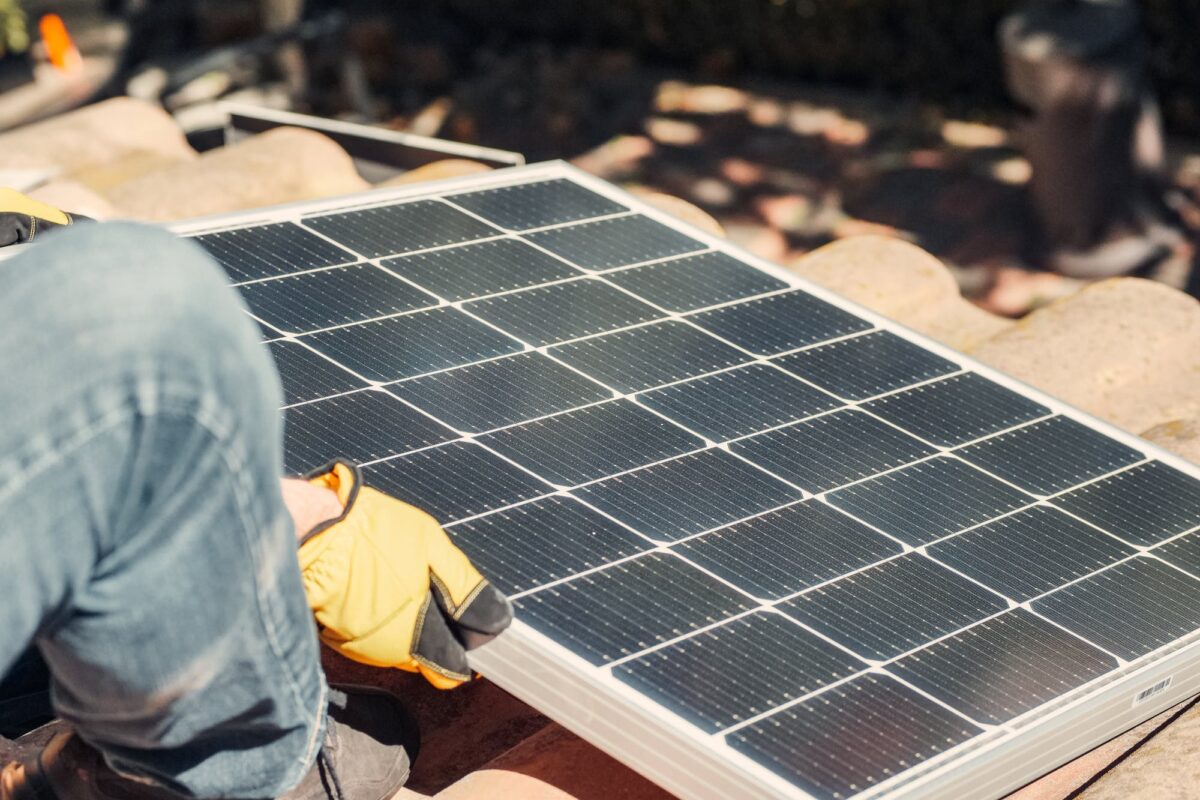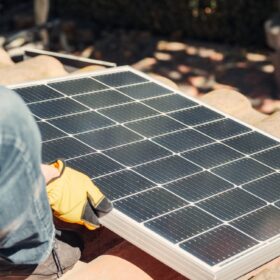Domestic-made solar modules are to be available through a new distributed partnership between Guided Path Solar, a Texas-based distributor, and First Solar.
First Solar’s cadmium telluride thin-film solar panels made in the U.S. are not subject to current U.S. import tariffs that apply to many imported crystalline-silicone modules.
First Solar manufactures its modules in both its U.S. and international facilities, and distributors have the option to specify the origin of modules it purchases.
All of the modules that the distributor Guided Path Solar has purchased from First Solar were manufactured in the U.S. to date, Joseph Queener, Guided Path Solar’s director of business development told pv magazine USA.
Made in First Solar’s Ohio facilities (as well as Louisiana upon its upcoming facility’s completion), the modules contain 100% domestic content, which are expected to qualify for the Inflation Reduction Act’s domestic content bonus.
“Opting for U.S.-based manufacturing helps us mitigate potential supply chain disruptions,” Queener said. “We can rely on consistent, high-quality production standards, giving our customers greater confidence in both the availability and the performance of their solar projects.”
The large-format panels will be available through First Solar’s distribution channel, which include First Solar’s Series 6, Series 6 Plus and Series 7 modules.

Image: First Solar
These panels use First Solar’s cadmium telluride thin-film technology, which have a larger form factor to improve efficiency and enhance the installation velocity. The technology also has a lower carbon intensity to manufacture than traditional polysilicon solar cells. According to First Solar, its Series 6 and Series 7 modules have the lowest carbon footprint and wafer footprint among its competitors.
A distributor based in Austin, Texas, Guided Path Solar provides project support, end-to-end logistics, project-aligned financing, and product and warranty support. According to the company, it is using new capital investments to expand its stock to provide additional offerings.
Domestic solar module manufacturing in the U.S. has grown five-fold since the passage of the Inflation Reduction Act (IRA), the Bipartisan Infrastructure Law and the CHIPS Act. The U.S. is the third largest solar module producer in the world, according to the Solar Energy Industries Association.
(See also: First Solar closes $700 million in tax credit transfer sales)
“It’s a win-win situation,” Queener said. “They save on costs, and at the same time, they’re supporting American workers and local economies,” he said. “With the IRA tax credit offering additional incentives for domestically produced modules, our customers see tangible financial benefits in buying American-made.”
First Solar began serving the distributed generation market about four years ago, both directly and through distribution partners.
The Ohio-based manufacturer opened its $1.1 billion facility in Alabama last September. The company operates three facilities in Ohio and is currently constructing $1.1 billion 3.5 GW plant in Louisiana expected to come online next year. Once the Louisiana facility is operational, the company expects to have more than 14 GW of domestic capacity.
This content is protected by copyright and may not be reused. If you want to cooperate with us and would like to reuse some of our content, please contact: editors@pv-magazine.com.









By submitting this form you agree to pv magazine using your data for the purposes of publishing your comment.
Your personal data will only be disclosed or otherwise transmitted to third parties for the purposes of spam filtering or if this is necessary for technical maintenance of the website. Any other transfer to third parties will not take place unless this is justified on the basis of applicable data protection regulations or if pv magazine is legally obliged to do so.
You may revoke this consent at any time with effect for the future, in which case your personal data will be deleted immediately. Otherwise, your data will be deleted if pv magazine has processed your request or the purpose of data storage is fulfilled.
Further information on data privacy can be found in our Data Protection Policy.